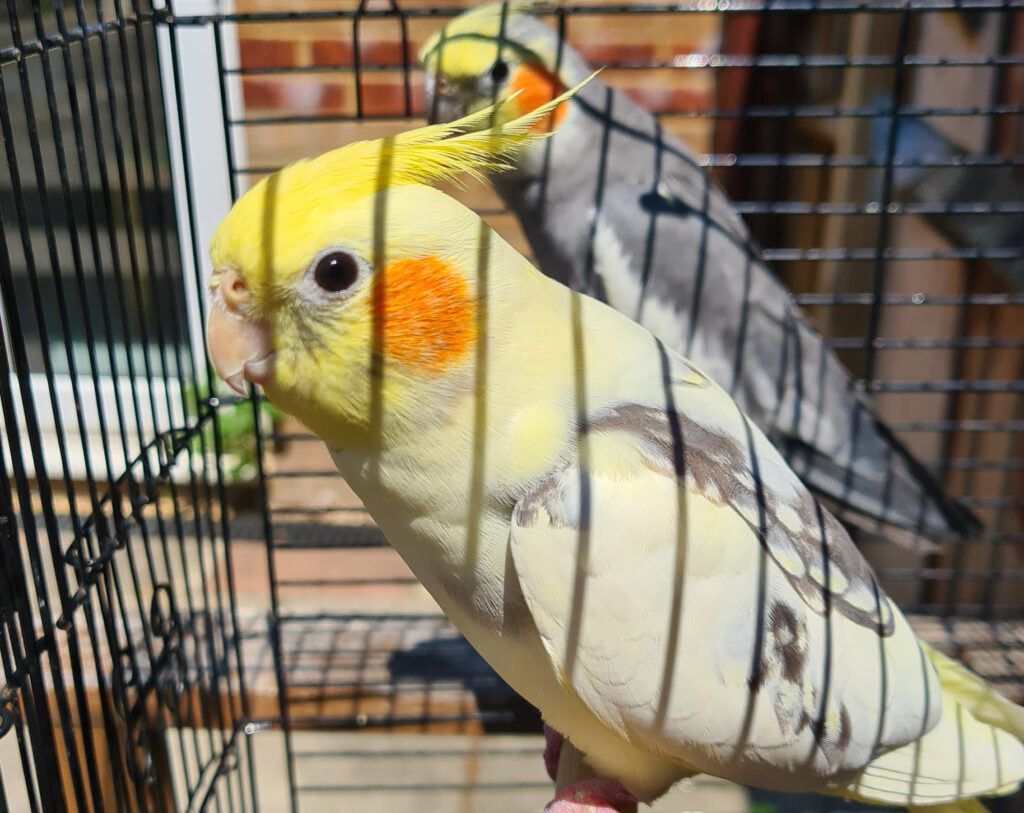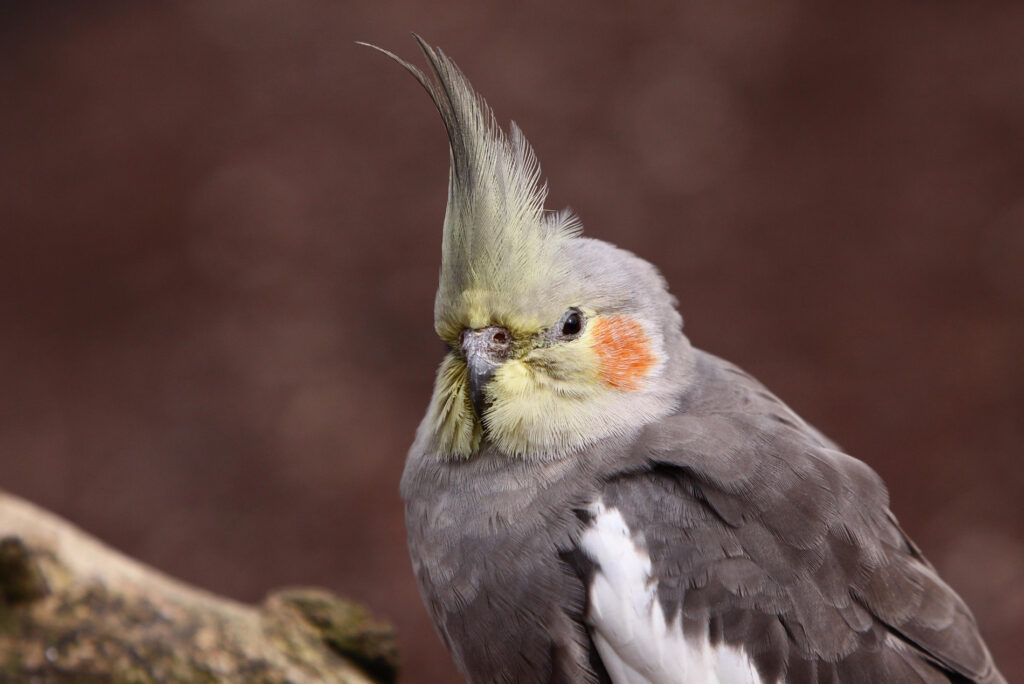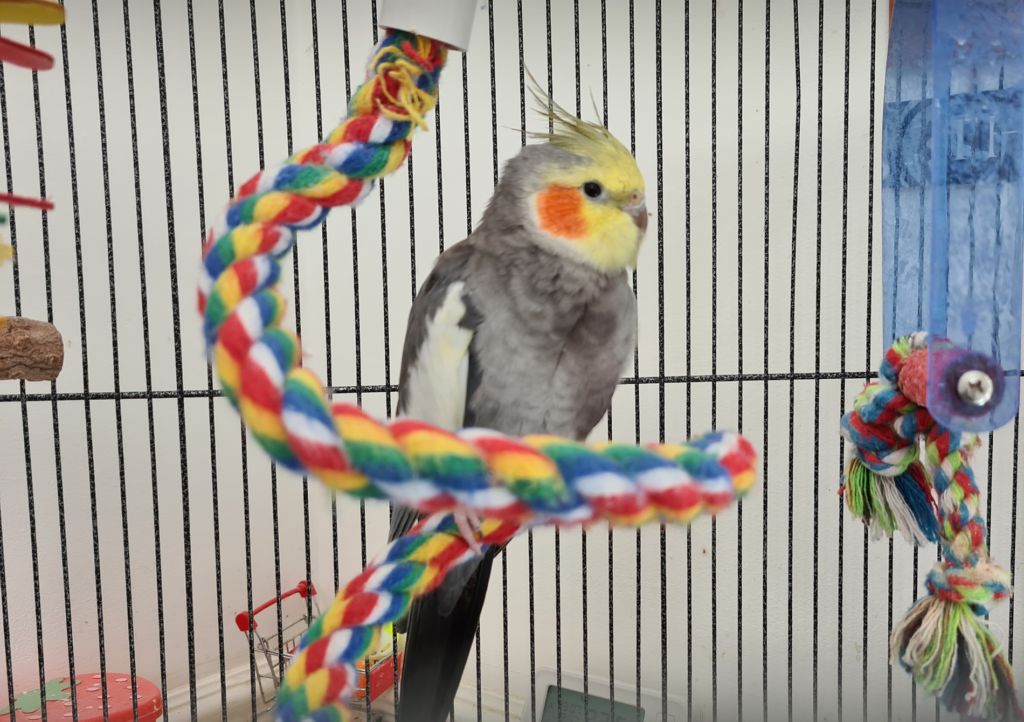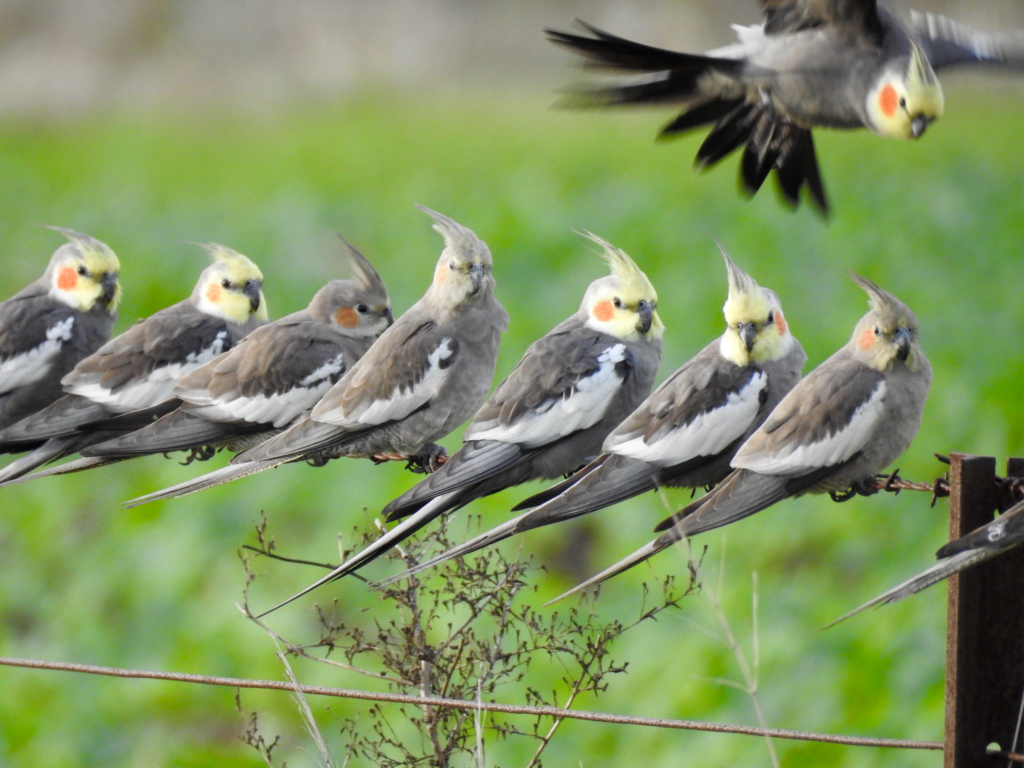The world of cockatiel basics is a vast and exciting one. These delightful birds are known for their charming personalities, endearing crests, and beautiful plumage, which make them an ideal choice for pet lovers. This article aims to shed light on the key aspects you need to understand about cockatiel care, behaviour, diet, and health.
Understanding Your Cockatiel’s Behaviour
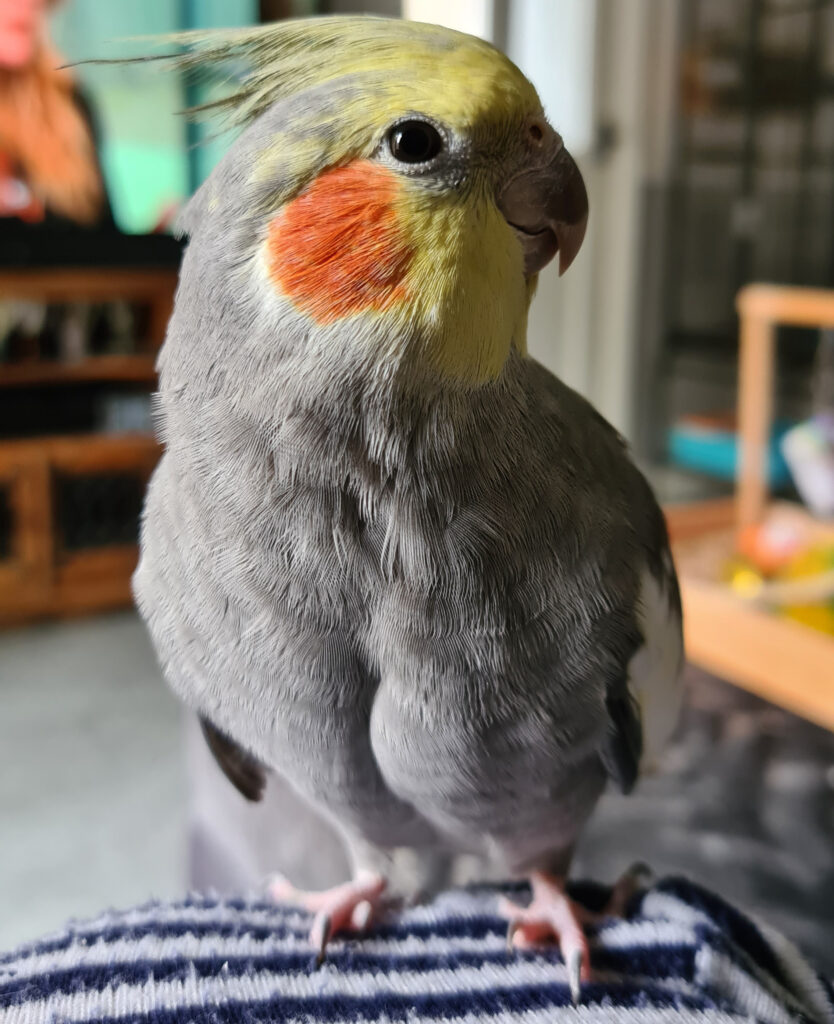
One of the first cockatiel basics to grasp is their behaviour. Cockatiels are social creatures and yearn for interaction. When content, they display their happiness through their signature crest. An upright crest often signals excitement or curiosity, while a flat crest can indicate anger or fear.
One day, I noticed that my cockatiel’s (Chigs) crest was flat when I approached him. Recognising this sign, I gave Chigs some space, and soon enough, his crest returned to its usual upright position. He just needed his own space for a while.
Interacting with your cockatiel is paramount. Understanding these subtle cues can go a long way in ensuring your pet’s wellbeing.
Your Cockatiel’s Diet: Beyond the Basics
Getting the diet right is a crucial part of cockatiel basics. A well-balanced diet is essential for a healthy cockatiel. Seeds should form only a part of their diet. Vegetables, fruits, and formulated diets (cockatiel pellets) also play a significant role.
My flock are very fussy when it comes to food. They are total seed fiends! I tried transitioning them onto pellets but they flat out refused. Then I found Hari Tropimix which is a mix of good seeds, fruit and pellets. More importantly, my cockatiels don’t turn their noses up at! To begin with, they did pick out the seeds but I know they are eating the pellets mixed in too. Result!
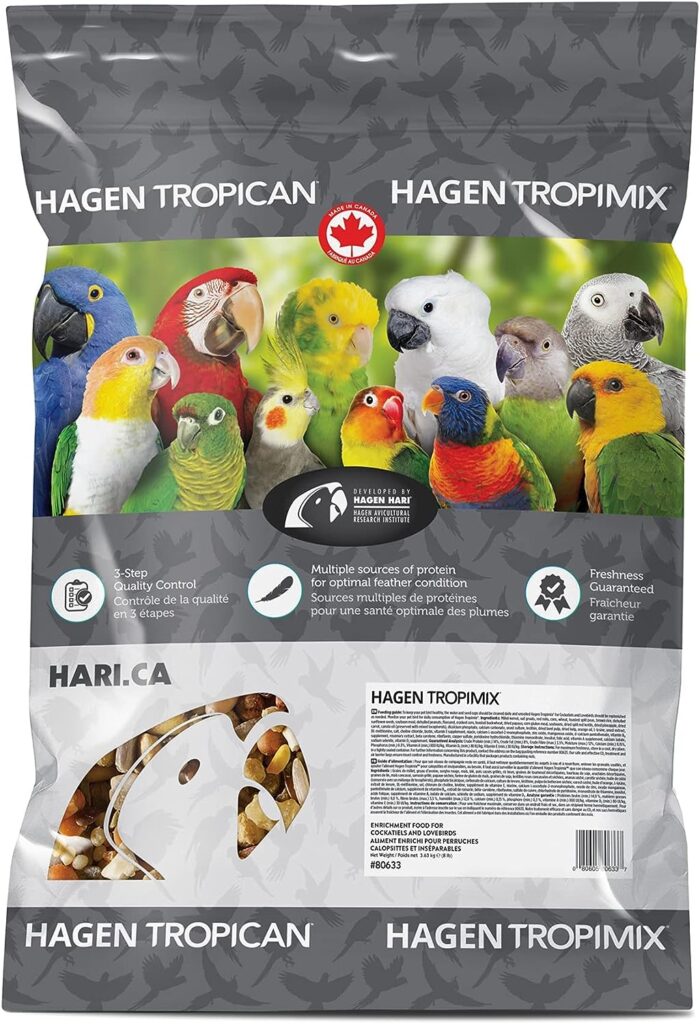
The Importance of Cockatiel Cage Setup
When considering cockatiel basics, the cage setup is a major factor. Cockatiels require enough space to stretch their wings and exercise. The cage’s bars should be horizontal to encourage climbing, and the inclusion of various toys will keep your pet entertained and stimulated.
Regular Health Checks and Cockatiel Basics
Regular health checks are a core part of cockatiel basics. Birds often hide their illnesses, so subtle changes may be your only clue. Changes in weight, feather condition, behaviour, or droppings may indicate a problem.
The Significance of Social Interaction in Cockatiel Basics
Cockatiels thrive on social interaction, and isolation can lead to depressive behaviours. Spend quality time with your bird and include them in your daily activities. Training your cockatiel to step onto your finger or shoulder can also strengthen your bond.
Cockatiel Basics: A World of Learning
In conclusion, understanding cockatiel basics is a fascinating journey. Your cockatiel’s behaviour, diet, cage setup, health checks, and social interactions are all key elements that contribute to their happiness and well-being. Remember, every cockatiel is unique, and learning their distinct personality traits and preferences will not only ensure their health and happiness but also forge an unbreakable bond between you and your feathered friend.
Just like me, embracing the basic principles of cockatiel care will reward you with a joyful, loving, and healthy companion who brightens up your life with their lively presence and enchanting antics.
Frequently Asked Questions
What Are the Best Toys for a Cockatiel?
Cockatiels are playful birds that enjoy interactive toys. Things like bells, swings, ladders, and foraging toys can provide essential mental stimulation. Remember to choose safe, bird-appropriate toys, and regularly check them for wear and tear.
A great idea for a shredding toy to keep your birds occupied, is this seagrass shredding/foraging toy. It lasts longer than most cockatiel toys and provides hours of entertainment.
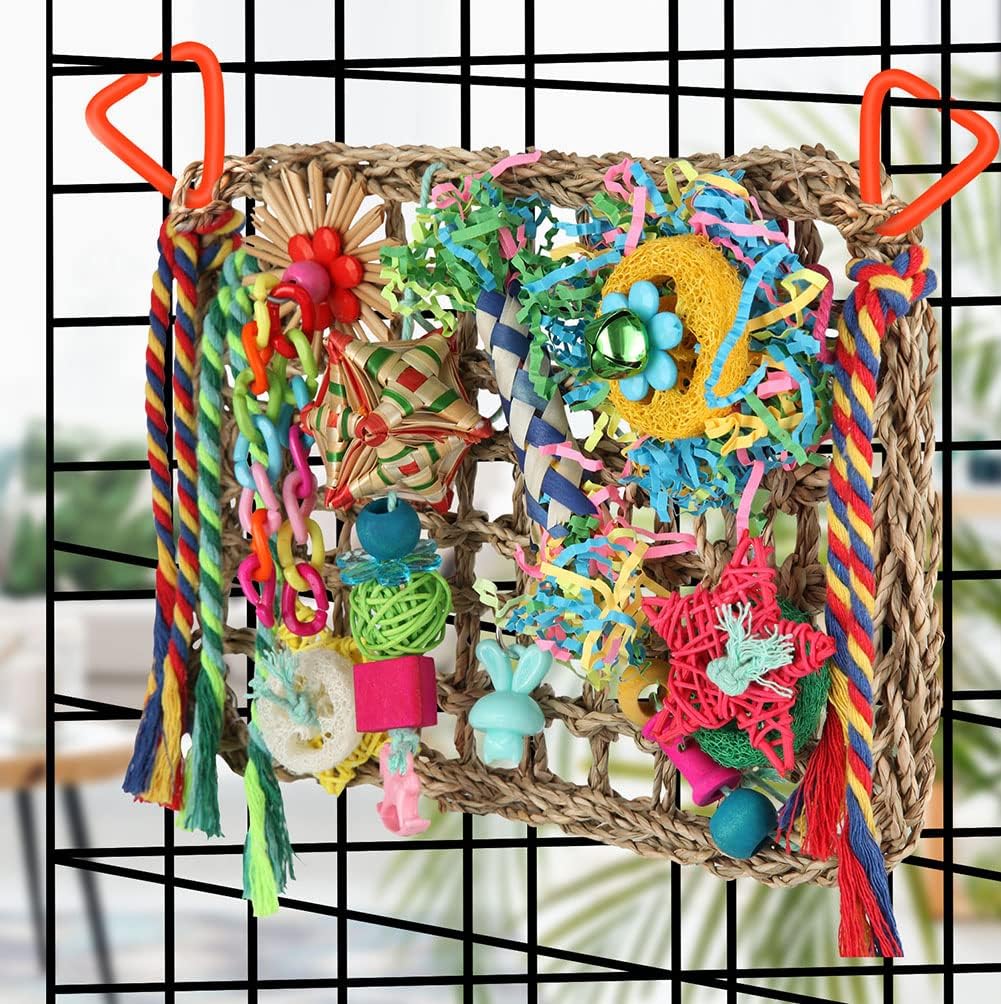
How Often Should I Clean My Cockatiel’s Cage?
A clean cage is key to your cockatiel’s health. Daily removal of food waste and droppings is recommended. A thorough cleaning, including disinfecting the cage and changing the bedding, should be done weekly.
I clean my cages with Johnson’s Clean n Safe. It’s safe for birds and easy to spray on cages, perches etc and clean off. I go through a lot of this stuff, so usually get the twin pack.

How Can I Tell If My Cockatiel Is Sick?
Cockatiels are masters at hiding illness. Look out for changes in their behaviour, eating habits, or appearance. Lethargy, loss of appetite, feather loss, and changes in droppings can all indicate illness. Weight change can be sign of underlying illness. See our blog “Cockatiel Size: The Ultimate Guide”.
Can Cockatiels Eat Human Food?
While cockatiels can enjoy some human foods, it’s essential they’re safe and healthy. Fresh fruits and vegetables are good choices. However, avoid avocados, chocolate, caffeine, and salty or sugary foods as they’re harmful to birds.
How Long Do Cockatiels Live?
With proper care, cockatiels can live up to 15-20 years, and sometimes longer. A balanced diet, clean environment, regular vet check-ups, and plenty of mental and physical stimulation can contribute to a long, healthy life. We cover the lifespan of cockatiels in our blog post “Cockatiel Lifespan: The Ultimate Guide” (click to read).
Can Cockatiels Talk?
Yes, cockatiels can mimic human speech, although their ability varies. Males are typically more vocal and more likely to talk than females. Regular interaction and repetition can encourage your cockatiel to talk. If you own multiple cockatiels, you will notice they talk to each other too. We covered this on our blogpost “Cockatiels Talking To Each Other”.
Are Cockatiels Good Pets?
Cockatiels make excellent pets for those willing to provide the necessary care and attention. They’re known for their friendly, affectionate nature, and playful personalities. However, owning a cockatiel does require commitment, as they need social interaction and mental stimulation.

